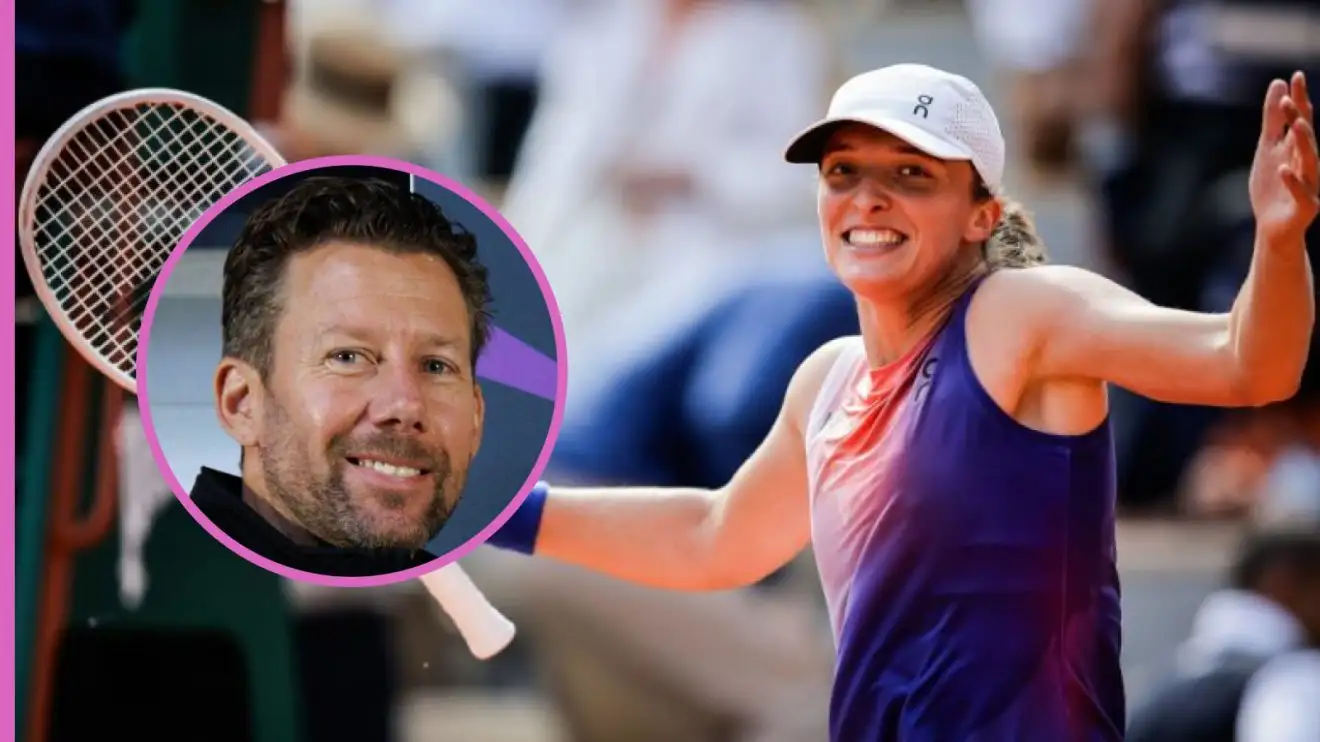
Iga Świątek, the world No. 2 and four-time Grand Slam champion, has taken a bold step in her career, enlisting the expertise of renowned coach Wim Fissette as she embarks on a new chapter. This collaboration follows her recent decision to part ways with longtime coach Tomasz Wiktorowski, who played an instrumental role in her rise to the top of women’s tennis. Under Wiktorowski’s guidance, Świątek claimed four of her five Grand Slam titles, including three consecutive victories at the French Open, solidifying her as one of the sport’s brightest stars. However, after a quarterfinal exit at the U.S. Open to Jessica Pegula, Świątek opted to make a coaching change, hoping to inject fresh perspective and strategies into her game.
The Polish star announced her split with Wiktorowski following her U.S. Open run, surprising many in the tennis community. Since then, Świątek took a brief hiatus from the WTA Tour, skipping the Asian swing to focus on finding the right coach who could guide her to the next level. Last week, she confirmed she had enlisted Fissette, a Belgian coach known for his vast experience and success with high-profile players, including Kim Clijsters, Naomi Osaka, and Angelique Kerber.
Fissette’s resume is impressive, having coached Osaka to her 2020 U.S. Open and 2021 Australian Open titles. His tenure with Clijsters is especially notable, as he guided her to three of her four major titles, and he has also contributed to the success of Kerber, helping her capture the Wimbledon title in 2018. Additionally, Fissette worked with Simona Halep and Sabine Lisicki, both of whom he coached to Grand Slam finals. His extensive experience and ability to bring out the best in elite players make him a valuable addition to Świątek’s team.
Former doubles star Rennae Stubbs recently shared her thoughts on Świątek’s decision to work with Fissette on her podcast. Stubbs expressed optimism about the partnership, noting that Fissette’s positive approach and fresh ideas could be exactly what Świątek needs at this stage in her career. “Listen, what do I think about how it’s going to go?” Stubbs asked. “I think it’ll go great because Wim will come in with new ideas and fresh ideas. He’s a lot more upbeat and positive than Tomasz [Wiktorowski].”
Stubbs pointed out that Świątek’s highly competitive nature and intense demeanor on court could benefit from Fissette’s calm, positive influence. “Working with Iga is about managing her stress, monitoring her mindset on the court,” Stubbs said. “Iga gets very stressed when things don’t go her way, and Fissette will be able to help her channel that energy productively. I think Iga will probably do great under his guidance and look like a legend.” For Świątek, who has at times struggled to keep her emotions in check during high-stakes matches, Fissette’s more relaxed approach may provide a stabilizing effect and enhance her resilience in critical moments.
Świątek’s first test under Fissette’s guidance will come at the WTA Finals in Riyadh, Saudi Arabia, where she will compete against the world’s top players, including current No. 1 Aryna Sabalenka. The tournament offers Świątek an opportunity not only to defend her title but also to potentially reclaim the top ranking, which she narrowly lost to Sabalenka after the U.S. Open. This year-end tournament will be a litmus test for Świątek and Fissette’s partnership, as they will face formidable opponents eager to secure their own spots at the top of women’s tennis.
Beyond the immediate goals of the WTA Finals, Świątek and Fissette will likely aim to bolster her Grand Slam performance across all surfaces. While Świątek has dominated the clay courts of Roland Garros, winning three French Open titles in as many years, her results at other majors have been less consistent. Outside of her 2022 U.S. Open victory, Świątek has not progressed past the quarterfinal stage at either Wimbledon or the Australian Open, and she is yet to reach a semifinal on grass. Improving her adaptability and mental resilience on various surfaces will be key if Świątek wants to build a more well-rounded Grand Slam legacy, a goal she has expressed in past interviews.
The addition of Fissette could be the catalyst for Świątek to achieve this comprehensive success. His experience in preparing players for diverse surfaces and handling high-pressure environments at Slams could help Świątek unlock new levels of consistency and confidence. Fissette’s coaching style is known for emphasizing tactical flexibility and mental resilience, qualities that Świątek can leverage to excel across the board. If the partnership flourishes, Świątek could become a greater threat not just on clay but also on hard and grass courts, bringing her closer to a true multi-surface dominance in the vein of Serena Williams or Novak Djokovic.
Świątek’s choice to team up with Fissette reflects her desire for continuous improvement, a characteristic that has endeared her to fans and established her as a formidable competitor on the WTA Tour. At just 23, she has already achieved a level of success that many players only dream of, but her decision to change coaches underscores her ambition to keep evolving. With Fissette’s guidance, Świątek has the potential to expand her skill set and mental game, positioning herself as a dominant force for years to come.
As the WTA Finals approach, all eyes will be on this new player-coach duo to see how they fare against the world’s best players. Whether or not Świątek manages to reclaim the No. 1 ranking in Riyadh, her collaboration with Fissette signals an exciting new phase in her career, one that could see her adding more Grand Slam trophies to her collection and further cementing her status as a tennis icon.
Leave a Reply